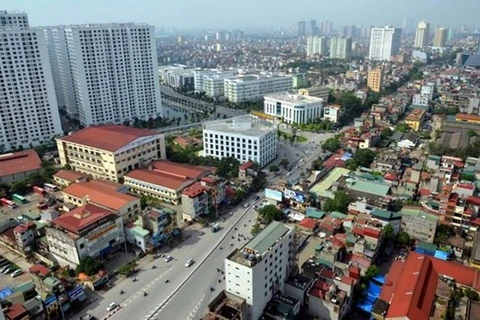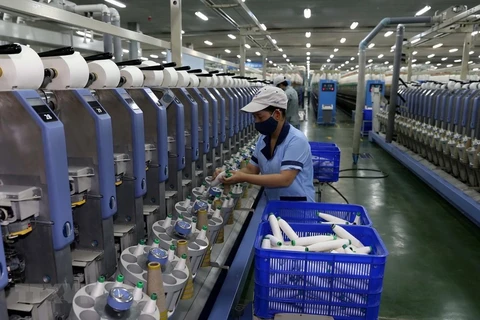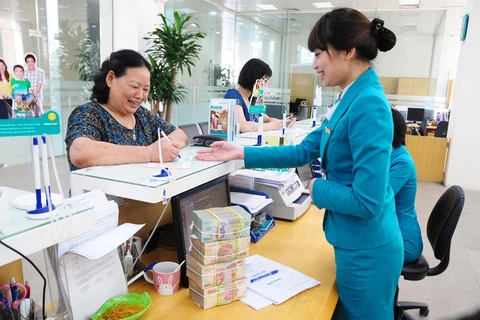Hanoi (VNA) - 2020 is a particularly important year for Vietnam as the country is starting to develop strategies and plans for the next period. The Ministry of Finance (MoF) is assigned to coordinate with agencies, ministries and localities to draw up a 10-year public debt management strategy and a five-year public debt repayment plan to be submitted to the Government.
Within the framework of the public debt management reform programme, the MoF has cooperated with the World Bank (WB) and the International Monetary Fund (IMF) to organise a training course on sustainable debt management from February 24 to 28.
According to Vo Huu Hien, Vice General Director of the MoF’s Department of Debt Management and External Finance, the ministry will coordinate with relevant departments, sectors and localities to draw up a five-year plan on borrowing and repaying public debts in the 2021-2025 period to submit to the Prime Minister for consideration before June 30.
The plan will include a public debt ceiling and safety threshold for indicators of public and government debts compared to GDP, and a target for direct government debt repayment compared to the State budget, he said.
Currently, debt sustainability analysis (DSA) is one of the key debt management models that is closely connected to analysing, forecasting and performing debt portfolio risk management operations to ensure public debt safety and national financial security.
However, DSA has so far only been evaluated by IMF experts in the framework of their working visits to Vietnam without the direct participation of representatives from the MoF as well as relevant Vietnamese agencies to research the operation of the model.
 The Ministry of Finance will coordinate with relevant agencies and localities to build public debt payment and loan plans for 2021-2025 to submit to the Government (Photo: VietnamPlus)
The Ministry of Finance will coordinate with relevant agencies and localities to build public debt payment and loan plans for 2021-2025 to submit to the Government (Photo: VietnamPlus) Hien highlighted the significance of the training course, saying that they contribute to enhancing capacity building activities as well as to developing strategic reports for not only the MoF but also other agencies.
He expressed his hope that the course will provide practical lessons as well as policy implications for Vietnamese agencies in building, appraising, approving, implementing and monitoring the implementation of medium-term loan and repayment plans to ensure sustainable debt calculation.
The State Bank of Vietnam (SBV) has told banks to reschedule debt repayments to help customers affected by the COVID-19 pandemic.
It also reminded banks to choose the right customers to support and avoid potential abuse of supporting mechanisms.
Banks were told to consider rescheduling repayments, reducing interest rates and temporarily suspending debts for those affected by the novel coronavirus SARS-CoV-2 and have interest due between January 23 and March 31.
The central bank also asked banks to provide new loans to customers to stabilise their production and business.
Local banks then need to report back to the SBV between March 15 and March 31.
According to local banks, customers suffering the most were firms involved in transportation, storage, accommodation, tourism, and restaurant and food services. Others include agricultural and fisheries companies whose major export market is China and those whose main materials are imported from China.
As those affected by the disease were banks’ major customers, risk of increasing bad debts in banks was obvious. According to VPBank’s estimates, the total number of customers affected by COVID-19 was up to 1,000, and this may increase if the virus develops further.
Meanwhile, Pham Toan Vuong, deputy director of the Vietnam Bank for Agriculture and Rural Development (Agribank), said that his bank had not estimated the number of affected customers and how much they suffered yet, but the virus certainly would affect debt repayments for their customers.
As agricultural exports to China have been impacted, bad debts at Agribank have increased, as 70 percent of loans went to agricultural firms, he added./.
























